Norfolk Broads reed cutters keep ancient craft alive
 PA
PAJust a handful of skilled workers are keeping alive the craft of reed and sedge cutting on the Norfolk Broads.
The waterways provide about 10% of materials to thatch roofs in the UK - the rest is imported.
Reed cutting season starts in early January and is at its peak about now before ending in late April.
Cutter Paul Eldridge estimates his team will collect between 12,000 and 14,000 bundles this year, enough to thatch eight cottages.
The 39-year-old, from Norwich, left his job as an industrial chemist in New Zealand more than a decade ago to return to his home county and work in conservation.
He trained on a Broads Authority reed cutting scheme, with friend Rowan Nichols, who was working as a landscape gardener at the time.
"We liked it so much we carried on," said Mr Eldridge, who said there were now no more than 50 reed cutters in the UK.
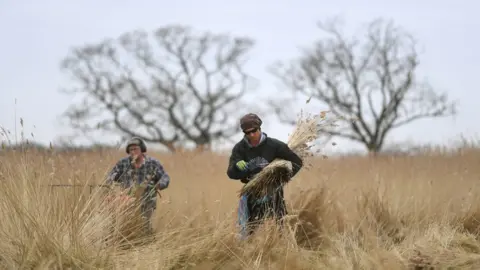 PA
PA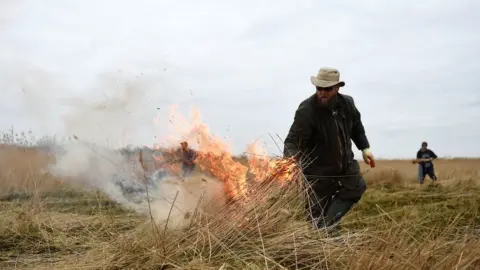 PA
PAThe pair were joined by builder Lawrence Watts about seven years ago and the three men work on the land throughout the year.
After the reed cutting season finishes, they cut sedge, which is used by thatchers for the cap of the roof, and in the winter months they carry out contract work such as clearing scrub for conservation charities.
"You've got to love this job otherwise you wouldn't do it, there's no two ways about it," Mr Eldridge said.
"The other week I was walking through a little bit we'd cut through the reeds and I nearly walked into a bittern."
About 90% of reed used in the UK was imported, according to Mr Eldridge, but while it was cheaper it "doesn't seem to have the longevity on the roof that English does".
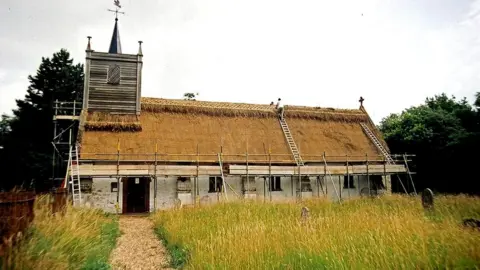 Gary Stokes
Gary Stokes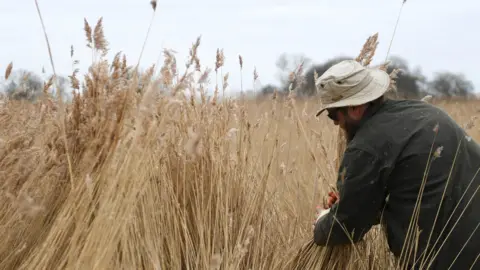 PA
PANorfolk thatcher of 33 years, Gary Stokes, gets 75% of his reeds from local suppliers but, for part of the year, buys from abroad because of a lack of supply.
He said he pays about £3 on average for a Norfolk reed bundle, using one to thatch 1 sq foot (about 0.1 sq m).
Mr Stokes said the "future looked healthy for thatching" with enough young people willing to be trained, but there were some questions over cutting by nature trusts and landowners.
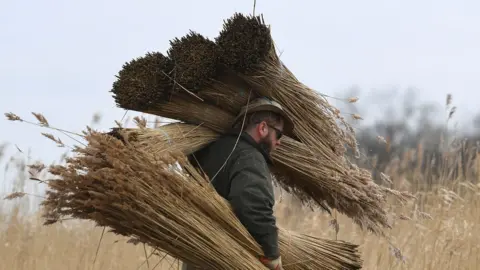 PA
PAAt present reed cutters like Mr Eldridge's team do not have to pay to work the reed bed as the landowner gets an environmental subsidy from the EU.
"If we were to have to start paying 30p or 40p per bundle for the privilege of cutting it, which is probably about what the difference in the subsidy is, it wouldn't be economically viable, no way," he said.
"It's marginal, let's put it like this, you only do this job if you like doing it. You don't do it for the fame, fortune and money that's for sure."
